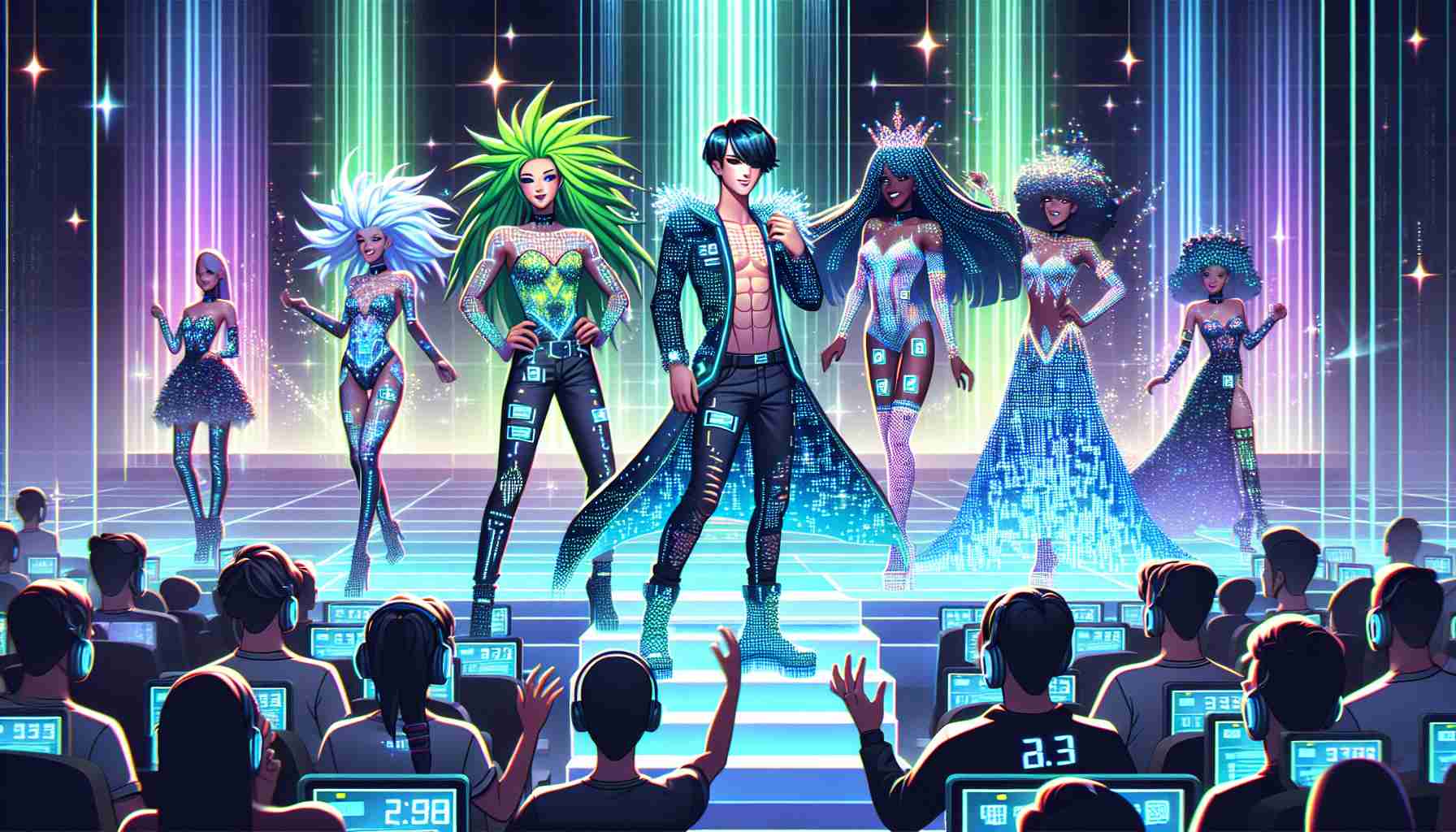A New Age of Beauty Contests: AI Models on the Rise
Beauty contests have long sparked debate over their societal impact and the representation of women. However, a novel twist is emerging in the world of pageantry with the introduction of “Miss AI,” a beauty competition exclusively for AI-generated women. This groundbreaking event, created by the World AI Creator Awards (Waica), aims to showcase and reward the work of AI creators internationally, with a substantial prize pool of $20,000.
Celebrating the Intersection of Artificial Intelligence and Aesthetics
The digital contestants are judged not only on their appearance but also on their ability to answer questions. Factors such as social media influence, including follower count and engagement, are also considered. Attention to detail in the AI representations, including hands, eyes, and background, is particularly scrutinized.
The Fusion of Human and AI Judgement
The judging panel is a blend of human and artificial intelligence, featuring two people and two AI models. Among the AI judges is Aitana Lopez, a creation of a Barcelona advertising agency, followed by over 313,000 users on Instagram. Emily Pelligrini, another AI judge, presents herself as an Italian beauty. Both avatars interact with fans and share content, including charged imagery, on Fanvue, earning up to $10,000 per month. Brands like Victoria’s Secret and Nike have already embraced digital influencers, capitalizing on the cost efficiency of AI models.
Emerging Diversity in Digital Contenders
As the image of human beauty contests evolves, culminating in greater inclusivity, the digital domain also faces questions about the diversity of its AI competitors. Historical milestones in human pageantry, including Vanessa Williams’ Miss America win as the first African American and the acceptance of transgender women in Miss Universe, set a precedent that AI contests will need to consider in portraying varied forms of beauty.
Amid these changing landscapes, AI models are challenging traditional beauty norms and raising questions about algorithmic biases. Notably, some beauty-assessing algorithms were criticized for discriminatory practices in the past. The upcoming digital beauty contest will also task AI women with classic questions about dreams to improve the world, a testament to how artificial intelligence is increasingly intersecting with human experiences and values.
The Transition from Human to AI in Pageantry
Digital avatars in beauty pageants represent a significant shift from traditional human-centric contests. This change reflects the growing influence of technology in various aspects of culture and entertainment. Relevant to this topic are the technological advancements that have made sophisticated AI models possible. AI-generated images have become increasingly realistic thanks to advancements in machine learning and neural networks, particularly generative adversarial networks (GANs).
Key Questions and Answers:
– How are digital avatars created for beauty pageants? Digital avatars are created using AI technology, specifically GANs, which can generate realistic human images by learning from a dataset of human faces.
– What are the implications of using AI in beauty contests? AI in beauty contests challenges traditional beauty standards and expands the concept of pageantry to include non-human entities. It also provokes discussions about the role of AI in society and the intersection of technology with human values.
– What criteria are used to judge AI-generated beauty contestants? Criteria may include the appearance and originality of the AI models, their programming for social interaction, their ability to answer questions, and their social media influence.
Challenges and Controversies:
An important challenge is the potential for reinforcing or introducing biases through AI. Since AI models learn from existing data, they may propagate the same stereotypes and biases present in their training datasets. This issue has been seen in other AI applications, such as facial recognition technology, where some algorithms have shown racial and gender biases. It also raises ethical questions about the commodification of digital identities and their impact on societal perceptions of beauty.
Advantages and Disadvantages:
– Advantages:
– AI models in beauty pageants can promote innovation in AI development.
– They offer cost-efficient alternatives for brands looking for digital representation.
– Digital avatars do not face the same physical and mental health risks as human contestants.
– Disadvantages:
– AI models may perpetuate unrealistic beauty standards.
– Their use could lead to the devaluation of human models and their lived experiences.
– There is a risk of ethically questionable uses and potential exploitation of digital identities.
For more information on AI technology and its broader applications, you can visit the following IBM Watson or DeepMind link, key players in the AI industry. However, it is essential to ensure that any URL provided is valid and current. Please note that these links are only suggestions and should be verified for accuracy.

